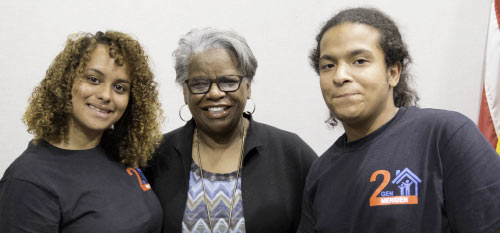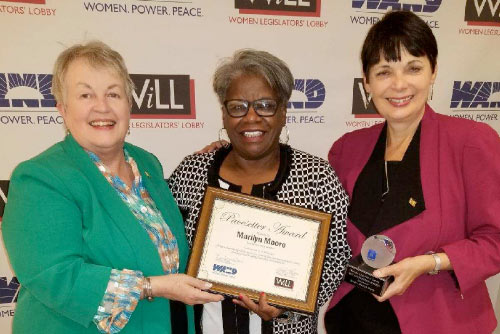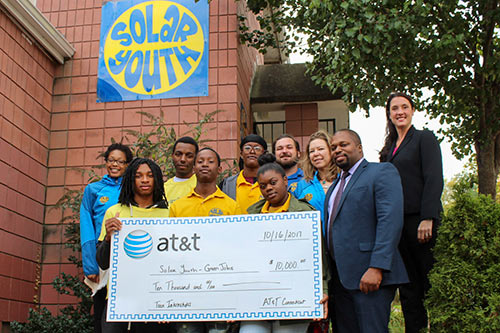Month: October 2017
Senator Winfield E-News: Public Hearings Set for New Haven-to-Hartford Train Line
Walk-in Mammogram?
Statement from Senator Martin Looney on Governor’s Comments
Statement from Senator Martin Looney on Governor’s Comments
“Legislative leaders are continuing to flesh out the final details of the bipartisan budget agreement reached in principle earlier this week. Once these details of the fully balanced bipartisan budget that represents consensus in the General Assembly are settled, we will share them with our caucus and the governor.”
—Senate President Pro Tempore Martin M. Looney (D-New Haven)
Sen. Gerratana E-news: The Improved 2-1-1 Service is Here to Help
2GEN in the Spotlight

2GEN in the Spotlight
Serving as the New England “poster child” for the two generational approaches, Connecticut was in the spotlight once again for its Two-Generation program, a model designed to help disadvantaged, low-income families sustain themselves.

Senator Marilyn Moore (D-Bridgeport) recently lead Connecticut’s Two-Generation (2GEN) team consisting of legislators, executive staff, staff and parents while meeting with state legislators, federal government agencies, parents, philanthropic organizations, staff and businesses from seven New England states, Georgia, and Mississippi. They were all interested in learning more about Connecticut’s 2GEN concept. The theme for the forum was “A Whole Family Approach to Jobs: Helping Parents Work and Children Thrive.”
What is 2GEN?
Creating a “Two-Generational” Pilot Program
Connecticut’s state assistance programs tend to split families into parents and children rather than addressing the needs of the family as a whole. But in 2015, in to address this issue, the General Assembly passed a law creating a two-generational (two-gen) pilot program. This innovative program will foster family economic self-sufficiency in low-income households by delivering academic and job readiness support services—including early learning programs, adult education, child care, housing, job training, transportation, and financial literacy—across two generations in the same household.
Why did the General Assembly pursue a two-gen pilot?
In order to access support services, a parent searching for a job, child care or transportation might interact with the Department of Labor, the Office of Early Childhood, the Department of Education, the Department of Social Services and the Department of Transportation at the same time. In contrast, under the two-generational model, the parent would be able to have a single point of contact to access all of the support services at once.
Five municipalities in Connecticut currently offer 2GEN services. The Connecticut General Assembly’s statewide 2GEN initiative equips families with the tools and skills they need to get on the path to opportunity and self-sufficiency, by ensuring education and workforce development services for parents and high-quality early education for children. The two-generational approach recognizes that if any part of a family system is not getting the support it needs, the other parts suffer, too.
“The Posterchild”
Since launching the 2GEN model in 2015, Connecticut has become the posterchild in New England for this type of approach. This June, Senator Moore, along with the Connecticut Commission on Women, Children and Seniors, hosted representatives from the Governor of Maryland’s office who visited Connecticut to learn more about the state’s 2GEN approach to combat intergenerational poverty.
At the time, Maryland’s governor had recently signed an executive order establishing a 2GEN Commission and pilot program. During their visit to Connecticut, the Maryland group met with Zulianelis Rosario, of Meriden, who was a pregnant 18-year-old receiving prenatal care at the Community Health Center when she was referred to the 2GEN program. Her 9 month old son Gabriel now attends play dates at one of three family resource centers. Through 2GEN, Zulianelis received help getting her driver’s license and is enrolled in classes to get her high school diploma. She hopes to become a certified nurse’s aide.
Moore Named Legislative “Pacesetter” by WiLL

Senator Marilyn Moore (D-Bridgeport) was selected as a 2017 Women Legislators’ Lobby “Pacesetter” for her contributions to progressive public policy addressing today’s challenging and complex issues. Sen. Moore hopes this recognition can inspire and encourage other women to step up and lead.
Senator McCrory E-News: Breast Cancer Awareness Month
Senator Bye E-News: Fighting the Opioid Epidemic; Get Your Flu Shot
NBC News Investigation: Prescriptions May Be Cheaper Without Insurance
NBC News Investigation: Prescriptions May Be Cheaper Without Insurance
Watch Senate President Looney discuss price gouging by pharmacy benefit managers and what the General Assembly is doing to stop it.
Winfield: AT&T Awards $10,000 Grant to Support Local Green Jobs Initiative

Winfield: AT&T Awards $10,000 Grant to Support Local Green Jobs Initiative
Nonprofit organization Solar Youth helps prepare New Haven youth to compete in Connecticut’s burgeoning green economy

NEW HAVEN— Senator Gary Winfield (D-New Haven) joined AT&T Connecticut today for a ceremonial presentation of a $10,000 grant to Solar Youth, a New Haven-based nonprofit organization committed to empowering young people from the city’s low income neighborhoods to achieve lifelong success through exploration, problem-solving and long-term supportive relationships with mentors.
Earlier this year, when representatives from AT&T reached out to Sen. Winfield looking for a community program they could invest in, he recommended Solar Youth. On Monday, AT&T Connecticut representatives Sen. Gary Winfield paid a visit to Solar Youth to meet with students and staff and to officially present the grant.
“I can’t say enough great things about Solar Youth and I applaud our city’s young people for everything they have been able to achieve through this program. It’s truly inspiring,” Sen. Winfield said. “Connecticut is and will continue to be committed to protecting the environment for future generations. But the only way we accomplish this is to have everyone —from government officials, to private businesses, to youth leaders in our communities —do what they can to help out. I’m proud to be a part of that here today and I want to thank AT&T for their investment this program.”
AT&T’s $10,000 grant will specifically support the organization’s Green Jobs Internship program. Through this internship program, Solar Youth helps connect participating high school students with paid internships in the green economy. Interns—or, “Green Jobs Apprentices”—learn concrete, transferrable skills that will help prepare them to enter the local workforce and positively contribute to the community.
“It has never been more important to empower youth to break the cycle of poverty and achieve lifelong success,” said Joanne Sciulli, executive director/founder of Solar Youth. “Solar Youth is proud to be partnering with AT&T in support of our Green Jobs Youth Development program. We share a commitment to advancing education and strengthening communities. This program offers youth with opportunities to develop job and leadership skills, exposes them to college options, and supports them as positive agents of change in their communities.”
“All of us at AT&T are always striving to be leaders in innovation. We’re thrilled to have the opportunity to support an organization with that same mindset,” said Kelly Wade Bettuchi, Director External Affairs, AT&T Connecticut. “Solar Youth is an incredible organization that helps local students learn the skills they’ll need to secure jobs in the future. More importantly, it’s an organization that helps young people develop genuine passion for problem-solving and community improvement.”
Learn more about Solar Youth by visiting www.solaryouth.org.